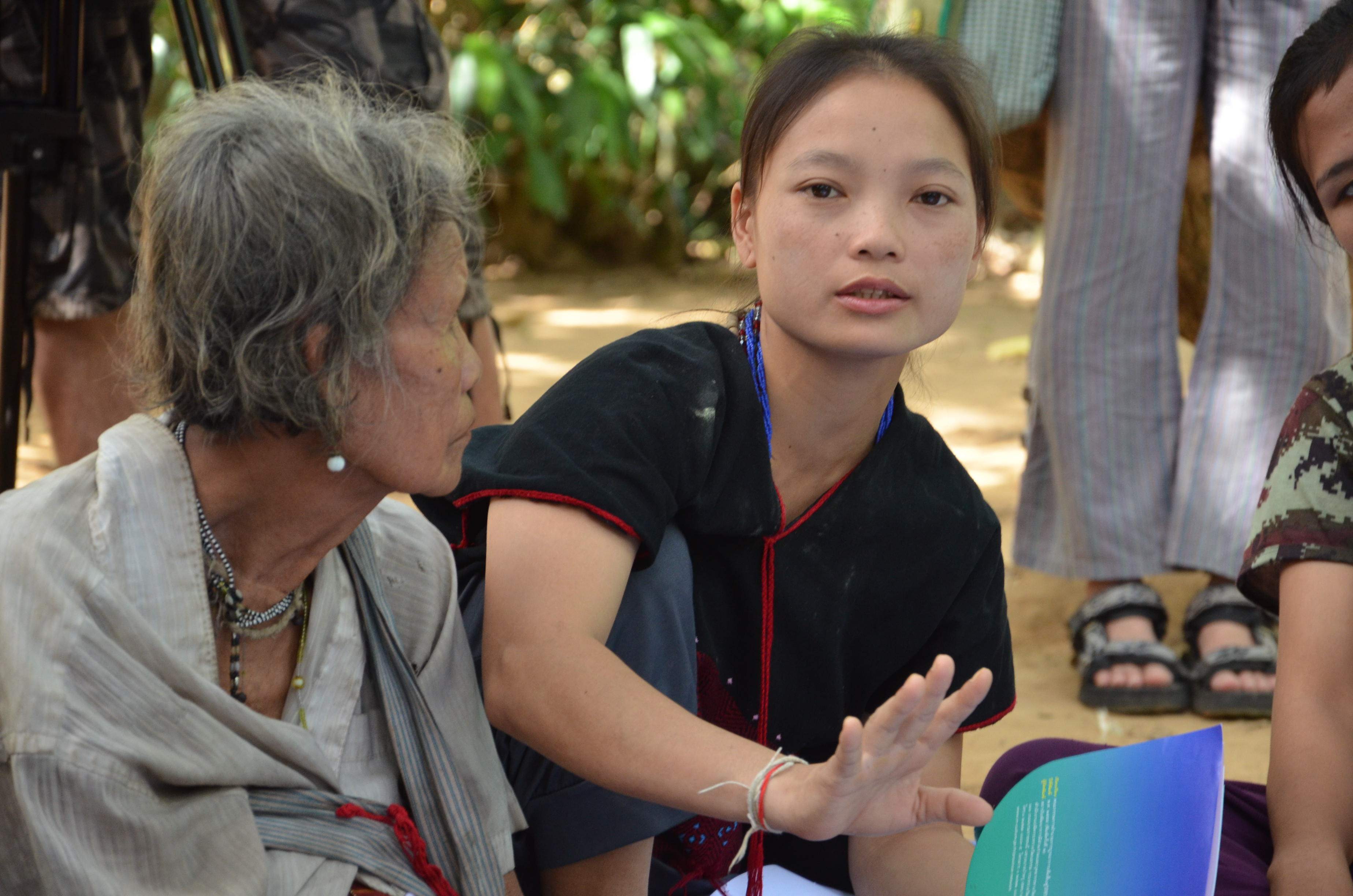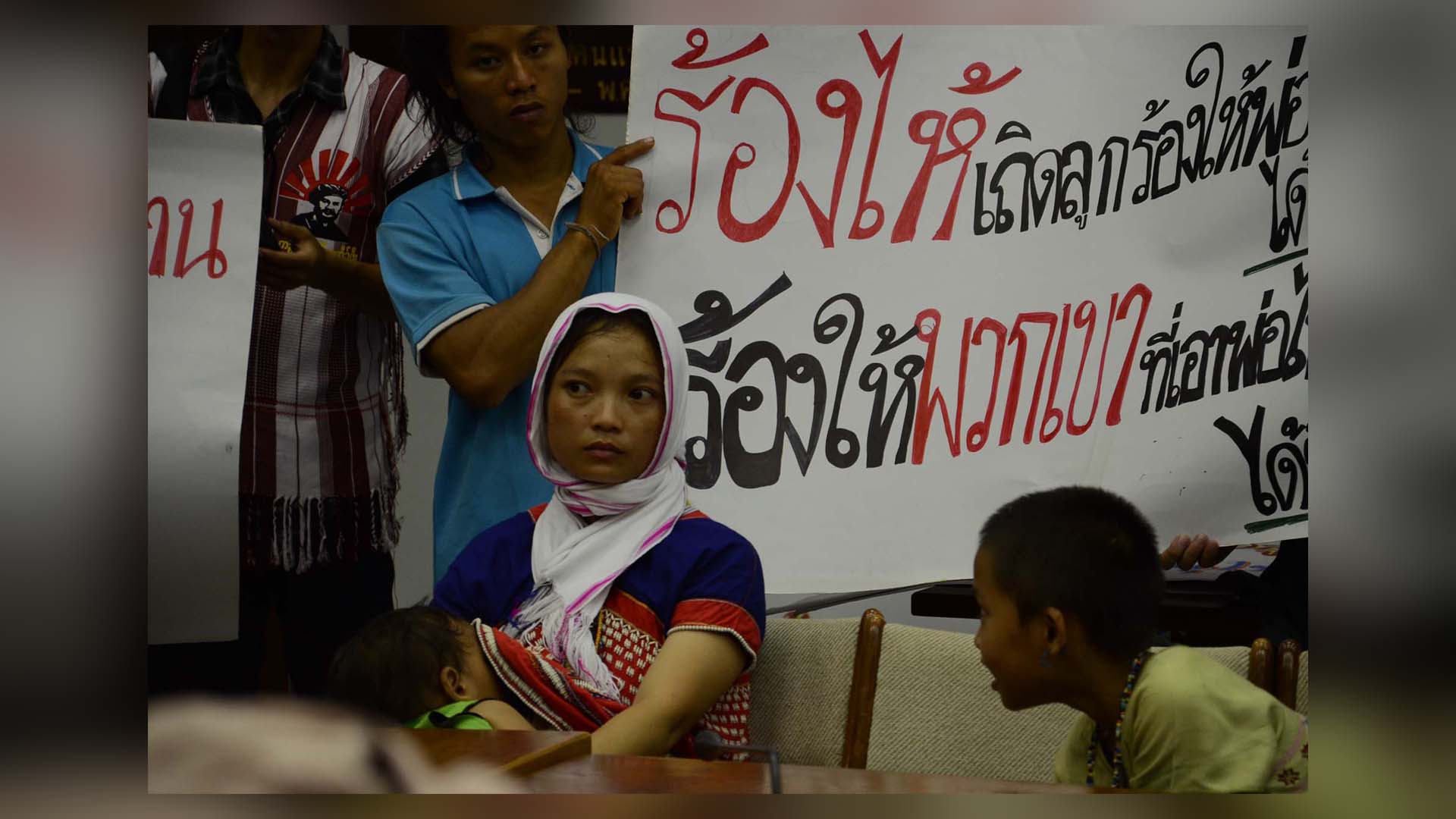A bitter fight for justice
The former Kaeng Krachan National Park (KKNP) Chief, Chaiwat Limlikit-aksorn, and three other park rangers are walking free from the murder of Porlajee “Billy” Rakchongcharoen, the indigenous Karen human rights activist. The state prosecutors dropped the charges against them on 23 January 2020.
Pinnapa “Muenoor” Prueksapan's, the wife of Billy, hope for justice in the killing of her husband in 2014 has quickly taken a dark turn. It was only on 28 November 2019 – just around two months ago – when Thailand’s Department of Special Investigation (DSI) issued warrants of arrest to the accused park rangers after finding Billy’s body burnt inside an oil barrel in April 2019. Until then, Billy’s case was one of deceparacido.
Through those years, Muenoor, a mother of five, never stopped looking for her husband. The wide public attention from within Thailand and the international community have quite an impact on the progress of the case. For one, it helped pressure Thailand’s DSI to look into Billy’s case in 2018 after having initially rejected the earnest appeal of Muenoor a year before. But with the recent development, the world is yet to see if the DSI will fail her again.
The lawyer of Muenoor is confident that the DSI will argue against the state prosecutor’s decision and demand for the four park rangers to face the murder charges. But he is already preparing a briefing for Muenoor in the occasion that she will have to pursue the criminal charges on her own.
The four park rangers will now only be made accountable for minor charges, i.e. failing to handover Billy to the police when they arrested him for allegedly collecting wild honey in the forest on 17 April 2014. That was the last time Billy was seen alive.
His story of how he never made it back home after the four park rangers of the KKNP arrested him has widely caught the attention of many local Thai activists including various international human rights groups. Since his village was brutally evicted in 2011 and having endured the hardship of life as a result of their being brutally evicted from their forest, he was actively organising members of the Karen indigenous communities in Kaeng Krachan. Unbeknownst to Billy, his fight for his and his communities’ right to live in the forest is gradually earning the ire of the authorities in KKNP. On the day he was arrested, he had with him proof that will pin Chaiwat over the burning of their bamboo homes and rice barns.
In November last year—immediately after warrants of arrest were issued— all four park rangers have been released on an-800,000 THB (around 26,000 USD) bail each. Within the same month, the Secretary at the Natural Resources and Environment Ministry agreed to transfer Chaiwat from Ubon-Ratchathani Protected Area to the Provincial Office for Natural Resources and Environment Pattani located in deep south Thailand. The Secretary denied the transfer had anything to do with the National Park Chief’s involvement in the murder case.
According to the Representative of Protection International in Thailand, Pranom Somwong, the transfer seriously worries the human rights defenders and local communities living in the deep south of Thailand. She said the deep south is even more remote. Incidents of wrongdoings or violations very rarely get public attention, especially when conducted by high-ranking government officials.

Photo by: Indigenous Media Network, Thailand
In the name of conservation
Billy’s case is just one of numerous incidents of criminalisation against members of indigenous communities in Thailand. But his case is definitely an alarming forecast to the future of the 5 million self-identified Indigenous Peoples in the country, especially to those who dare stand up and fight for their rights. Often living in remote areas and majority considered stateless, Indigenous Peoples in Thailand face an uphill battle with authorities implementing the government’s heartless conservation and environmental policies.
Land rights activists have been condemning Thailand’s National Park Act and Community Forest Act; both of which updated in 2019. Both policies have been used to justify evictions, often brutal and unceremonious, of forest dwellers whose traditional agricultural practices are seen averse to the country’s conservation efforts.
The indigenous Karen communities have been working the lands and natural resources of the Kaeng Krachan forest through their belief, traditional practices and knowledge for generations. A military map dated 1912 shows Billy’s village have been in the same location for at least a century. The declaration of the area as national park was not until 1981. But the Karen communities’ contributions of having kept the forest worthy of conserving, enough to be declared a national park, are disregarded when these laws were formulated or are being implemented.
The wide attention to Billy’s case and the ruthless eviction of the Karen communities in KKNP has been significant for the World Heritage Committee to reconsider their decision to recognise KKNP a UNESCO site. But as the public interest is gradually waning, the Thai government is again eager to appeal to UNESCO. Unless the local and international support parallels that of the resolute Meunoor as she continues to fight for justice for Billy’s killing, the Thai government may have UNESCO reconsider their appeal and, worse, further toughen its conservation efforts.
[IPRI gives thanks to Pirawan Wongnithisathaporn and Phnom Thano for their help in this article.]
Banner and Title Image: Munor and her kids while demanding justice for her husband at National Park Wildlife and Plants Department Office, Bangkok
Photo by: Indigenous Media Network, Thailand


%2020.49.20.png)
